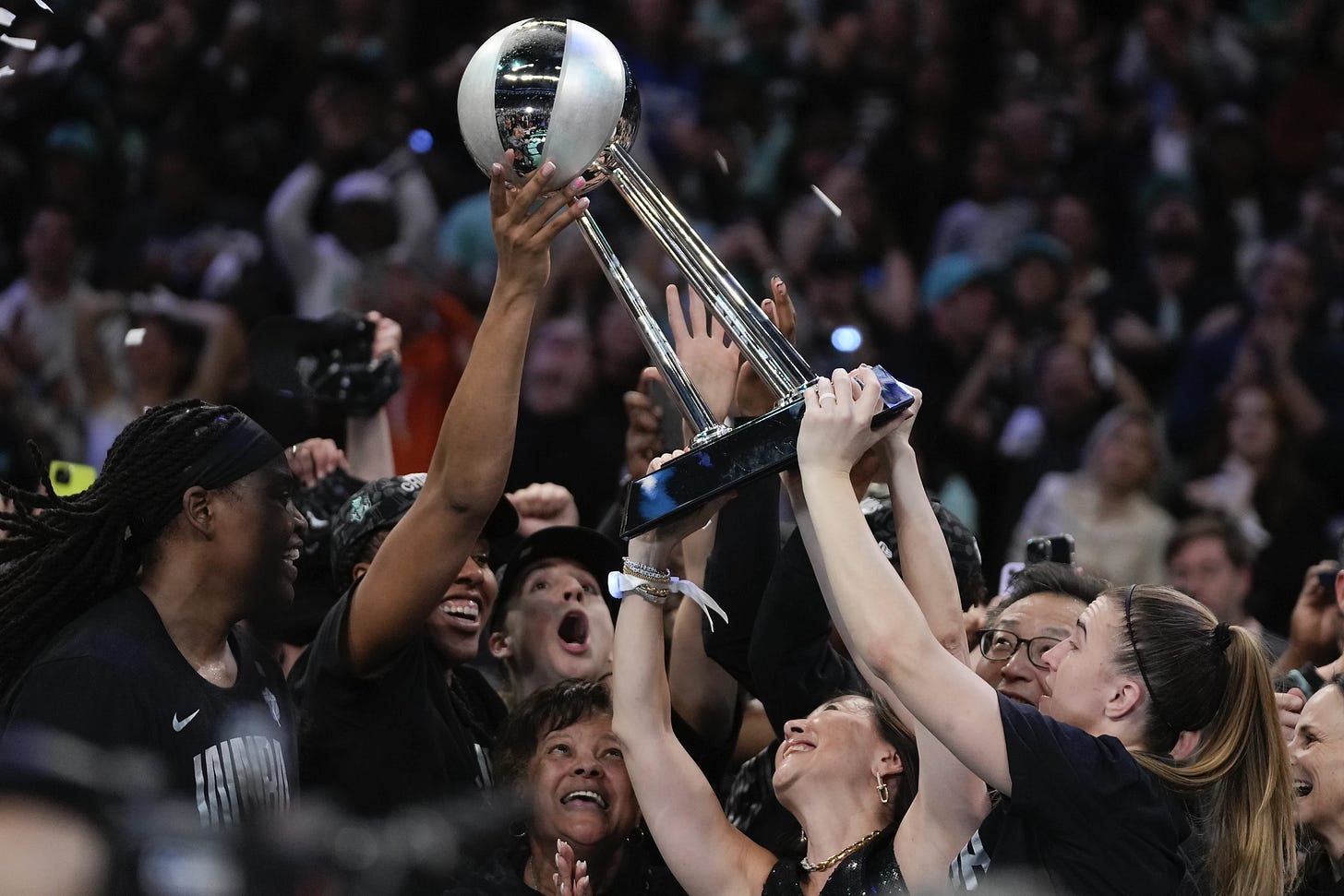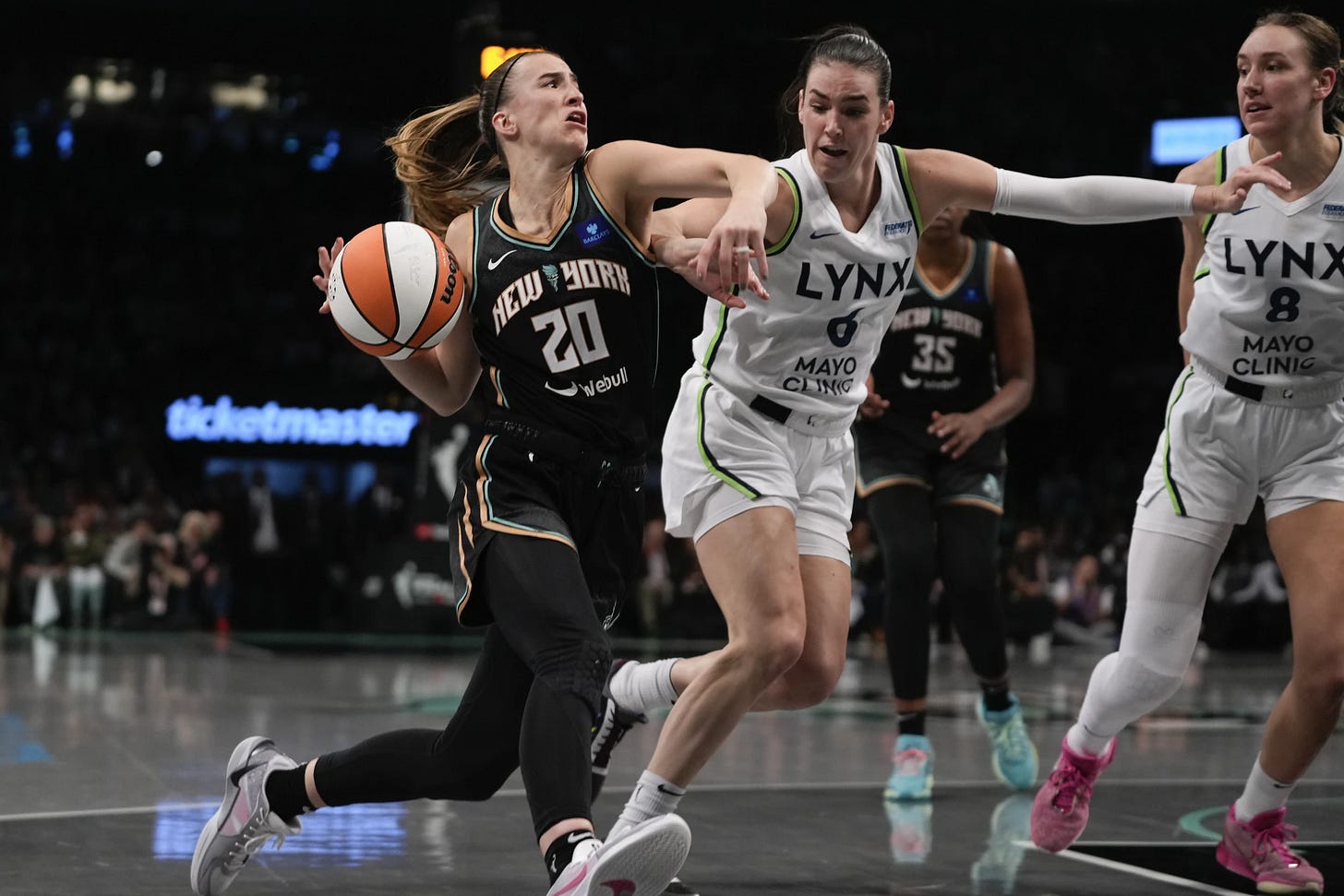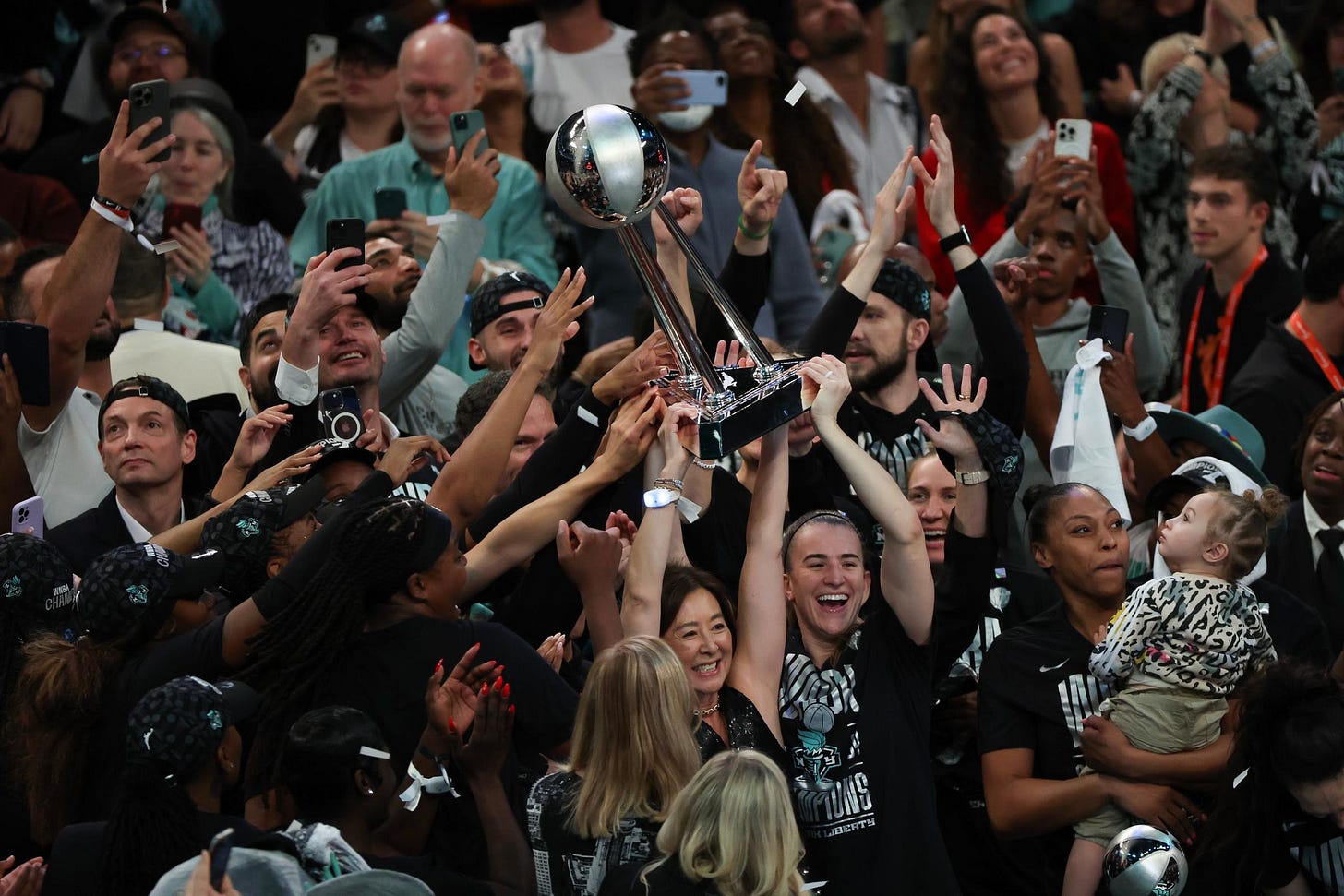The New York Liberty: Champions.
One of the WNBA's founding franchises, New York won their first title on Sunday: and brought the league's statement season to a terrific close.

Nobody said anything worthwhile came easy.
A charter franchise upon the WNBA’s founding in 1997, the New York Liberty have, for nearly 30 years now, too-often found themselves on the outside looking in.
No more.
After their five previous trips to the WNBA Finals, including 2023, came up in defeat, while the Liberty may have brought things down to the wire on Sunday, in closing out the Minnesota Lynx 67-62, they are, for the first time, champions.
The set-up alone, the type of thing sporting dreams are made of.
A winner-take-all, fifth and deciding game between the two best teams in the regular season, under the bright, sold out lights of Brooklyn’s Barclays Center. The Liberty, eager for a victory they had never tasted, Minnesota, gunning for a potential record-setting fifth WNBA championship.
It wasn’t though, at least not in the manner many were probably expecting, a slugfest between the teams’ respective stars.
A tight contest from tip-off, both sides battled closely, trading back-and-forth blows: though while Minnesota’s two-way dynamo Napheesa Collier alongside follow All-Star teammate Kayla McBride were the only players on either side to put up 20-plus points, they were virtually the whole of the Lynx’s offence on Sunday.
The Liberty, in contrast, showcasing a more, by-committee approach, if only out of necessity.
Of New York’s power-trio, only Jonquel Jones, who was named Finals MVP, was the consistent option offensively. Leading all players in points for the third time in the series, as she finished with six rebounds and 17 points, on 5-10 shooting.
In support, Nyara Sabally and All-Rookie team member Leonie Fiebich both put up 13 points to keep New York’s offence moving.
Breanna Stewart and Sabrina Ionescu meanwhile, while neither could find the net (going a collective 5-34 from the field) still proved their mettle as two of the best pure facilitators in the sport.
Ionescu, spacing well, had seven rebounds and kept the team active in transition with eight assists and Stewart, with fifteen boards established a personal momentum she would carry into overtime: nailing both her free throws in the final seconds, two of her thirteen points, the final dagger in the heart of Minnesota’s championship hopes - the exclamation point on this particular era of Liberty basketball. Ionescu, the college legend who became a homegrown superstar, Stewart and Jones, former MVPs, together, bringing to New York, the city’s first pro basketball title in nearly fifty years.

On the whole, though? The Liberty’s championship win is the capper on a WNBA season that saw the league increase its larger cultural profile exponentially. And that isn’t to say that it hadn’t put in the work previously, of course: from Ionescu battling Stephen Curry in the NBA three-point contest or the bevy of stars that worked tirelessly to bring woman’s basketball to the forefront of the North American sporting scene.
Though after years of looking to break through, completely, in 2024, the W did just that.
The league’s new media deal is, per USA Today, worth some $200 million, paired with an uptick in broader sponsorship and growth opportunities too. Player pay, upon the expected opt-out of the CBA will be a top priority, as will continued development in team facilities and training programs. The league’s championship series will now too, be a best-of-seven affair.
Expansion, as well, looms. The Golden State Valkyries, based out of San Francisco and headquartered in Oakland, will represent the Bay Area when they begin play in 2025 - in 2026, teams in Toronto and Portland will join the circuit. Though as reported by Sports Illustrated, league commissioner Cathy Engelbert is eyeing another a potential third team within the next four years, no later than 2028.
And on the court, maybe it was A’Ja Wilson, who, in winning her third MVP (this one unanimously) had one of the greatest individual seasons in modern basketball: averaging just a shade under 27 points and twelve rebounds a game, she was the first player to lead the league in total points, boards and blocks in a single season.
Someone with no true equal, who continues to redefine what is possible on the hardwood.
There was too, the Chicago Sky’s Angel Reese who, as a rookie with a seemingly boundless enthusiasm, set the league’s single-season rebounding record and brought fans, old and new, to the game in droves.
Though, more notably, perhaps it was “The Caitlin Clark Effect”.
The Indiana Fever guard, fresh off what was possibly the greatest college career ever, stepped into the pros with such an unparalleled ease, it was hard to believe. A player who fits every qualifier for the modern basketball player: an exceptional playmaker, shooter and committed physical presence. One able to dictate the flow of the game like only a special few can.
An All-Star, the Rookie of the Year, just the fifth rookie to be named to the All-WNBA First Team, the rewriter of vast portions of the WNBA record book, there was seemingly nothing Clark couldn’t do. An athlete for the social media age who was already a pop culture fixture, with millions in endorsements before her professional career even started.
Though now that it has? Oh man: look out.
So as the next generation of the women’s game begins, it will be with those players, rivalries aside, leading the charge.
And yes, despite all those positives, the league isn’t quite where it wants to be, specifically financially. As highlighted by Sports Illustrated’s Grant Young last week, the WNBA lost some $40 million over the past season - all those growth developments, a clear action in stabilizing the league’s revenue stream.
From where they are right now though, with superstars and champions, it is only a matter of time.
No longer is women’s basketball existing on the periphery. It has arrived.
Enjoy it.





